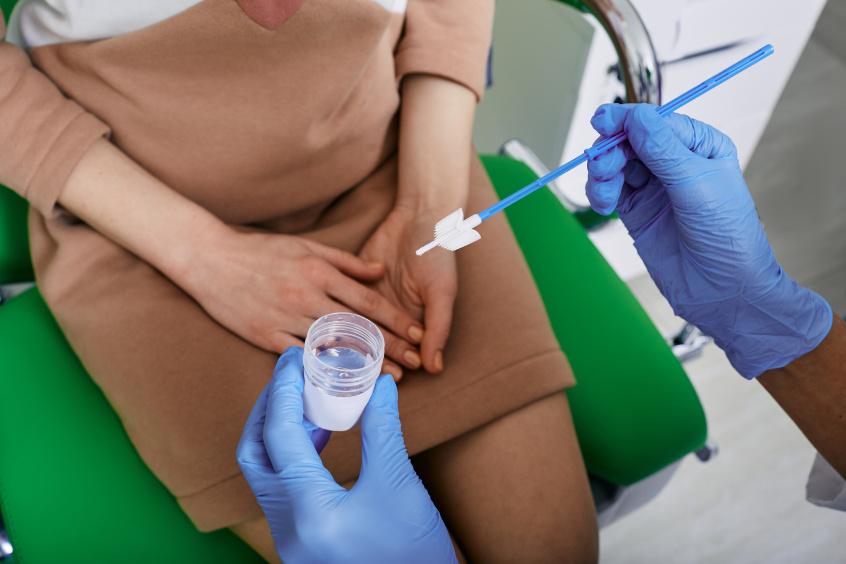A Pap smear is a simple yet essential test that plays a crucial role in preventive health screening for women. It is designed to detect early signs of cervical cancer and other abnormalities in cervical cells, making it a vital tool for safeguarding women’s health. Preventive health screening, including the Pap smear, empowers individuals to take proactive steps towards their well-being by identifying potential health concerns early on.
What is a Pap Smear?
A Pap smear is a medical test that examines cells from the cervix, the lower part of the uterus that opens into the vagina. The primary purpose of a Pap smear is to detect any changes or abnormalities in cervical cells that could indicate precancerous conditions or cervical cancer. By undergoing a Pap smear, women can stay informed about their reproductive health and take timely action if any issues are detected.
Why is a Pap Smear Important?
The importance of a Pap smear cannot be overstated. It is a critical tool for early detection of cervical cancer, allowing for treatment before the condition becomes more severe. Regular Pap smears can also identify other abnormalities, such as infections or inflammation, that might require medical attention. By prioritising Pap smears as part of preventive health screening, women can significantly reduce the risk of advanced cervical cancer and improve their overall quality of life.
When and How Often Should You Get a Pap Smear?
Knowing when and how often to get a Pap smear is essential for maintaining optimal health. Most medical guidelines recommend that women begin Pap smear screenings at the age of 21 and continue every three years if results remain normal. For women aged 30 and above, a Pap smear combined with HPV testing can be done every five years. The frequency of Pap smears may vary based on personal medical history, so consulting a healthcare provider is key to creating a personalised screening schedule.
How to Prepare for a Pap Smear
Proper preparation can help ensure accurate Pap smear results. It is advised to avoid sexual activity, douching, or using vaginal medications for at least 48 hours before the test. Scheduling a Pap smear when not menstruating also helps in obtaining clearer results. By understanding how to prepare for a Pap smear, women can approach the procedure with confidence and ease.
The Pap Smear Procedure: What Happens During the Test?
Understanding the Pap smear procedure can alleviate concerns and make the experience more comfortable. During the test, a healthcare provider gently collects cells from the cervix using a small brush or spatula. The procedure is quick, typically lasting only a few minutes, and is generally painless, although some women may feel mild discomfort. A Pap smear is a straightforward and effective way to monitor cervical health.
What Do Pap Smear Results Mean?
Interpreting Pap smear results is an essential step in the screening process. A normal Pap smear indicates that no abnormalities were found in the cervical cells, while an abnormal result may require further investigation. Abnormal Pap smear results do not always mean cancer; they could indicate other conditions such as infections or precancerous changes. Understanding Pap smear results helps women take the next steps with clarity and confidence.
Addressing Myths and Misconceptions About Pap Smears
There are many myths surrounding Pap smears that can deter women from getting screened. One common misconception is that Pap smears are painful, but in reality, they are usually quick and cause minimal discomfort. Another myth is that Pap smears are unnecessary if a woman feels healthy, yet many cervical abnormalities show no symptoms in their early stages. Addressing these myths helps emphasise the importance of Pap smears in preventive health screening.
Pap Smear and Preventive Health for Women of All Ages
Pap smears are a vital component of preventive health for women across all age groups. For younger women, Pap smears provide early detection of cervical abnormalities. For older women, including those who have entered menopause, Pap smears remain essential in monitoring long-term reproductive health. Integrating Pap smears into a comprehensive preventive health plan ensures that women can address potential issues proactively and maintain overall well-being.
Prioritise Your Health with Regular Pap Smears
Regular Pap smears are a cornerstone of preventive health screening and play a pivotal role in the early detection of cervical cancer and other abnormalities. By prioritising Pap smears as part of routine healthcare, women can take control of their health and reduce the risk of serious conditions. Schedule your Pap smear today and take a proactive step towards a healthier future.
FAQ Section
Q: Is a Pap smear painful? A: Most women experience little to no pain during a Pap smear, although some may feel mild discomfort.
Q: Can I get a Pap smear during my period? A: It is best to schedule a Pap smear when you are not menstruating, as menstrual blood can affect the accuracy of the results.
Q: Do I still need a Pap smear after menopause? A: Yes, women should continue getting Pap smears after menopause as part of their preventive health routine.
By addressing these common questions, the importance of Pap smears becomes even clearer in maintaining women’s health.






